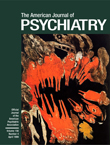Breast-Feeding and Alcoholism: The Trotter Hypothesis
Abstract
OBJECTIVE: The authors’ goal was to determine whether early termination of breast-feeding contributes to later alcohol dependence, as proposed more than 200 years ago by the British physician Thomas Trotter. METHOD: In 1959–1961, a multiple-specialty group of physicians studied 9,182 consecutive deliveries in a Danish hospital, obtaining data about prepartum and postpartum variables. The present study concentrates on perinatal variables obtained from 200 of the original babies who participated in a 30-year high-risk follow-up study of the antecedents of alcoholism. RESULTS: Of the 27 men who were diagnosed as alcohol dependent at age 30, 13 (48%) came from the group weaned from the breast before the age of 3 weeks; only 33 (19%) of the 173 non-alcohol-dependent subjects came from the early weaning group. When challenged by other perinatal variables in a multiple regression analysis, early weaning significantly contributed to the prediction of the severity of alcoholism at age 30. CONCLUSIONS: The data support the hypothesis that early weaning may be associated with a greater risk of alcohol dependence later in life.



